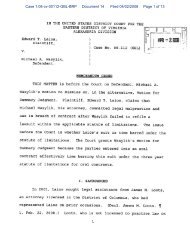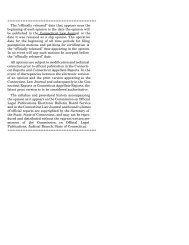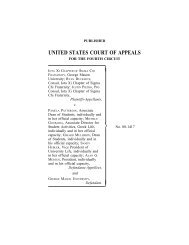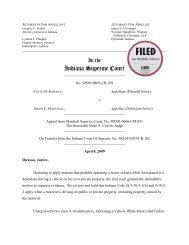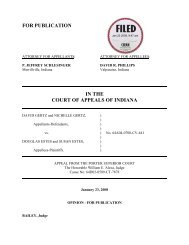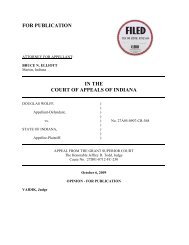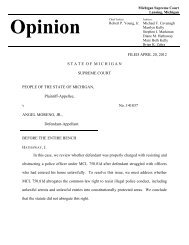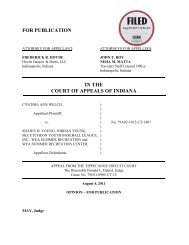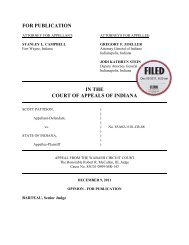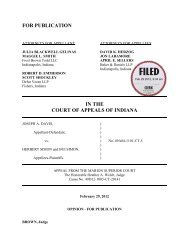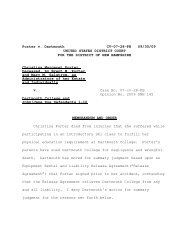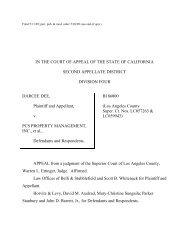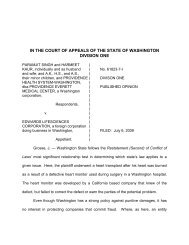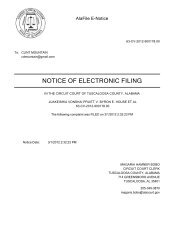PRECEDENTIAL UNITED STATES COURT OF APPEALS FOR THE ...
PRECEDENTIAL UNITED STATES COURT OF APPEALS FOR THE ...
PRECEDENTIAL UNITED STATES COURT OF APPEALS FOR THE ...
You also want an ePaper? Increase the reach of your titles
YUMPU automatically turns print PDFs into web optimized ePapers that Google loves.
courts of appeals also have applied equitable tolling in suits<br />
against the United States. Hedges, 404 F.3d at 748 (citing other<br />
courts of appeals); T.L. ex rel. Ingram v. United States, 443 F.3d<br />
956, 961 (8th Cir. 2006) (citing courts of appeals holding that<br />
FTCA’s limitations provision is jurisdictional but that equitable<br />
tolling nevertheless applies because Congress so intended). On<br />
the other hand, a court of appeals quite recently held that the<br />
FTCA’s statute of limitation is jurisdictional and thus if a case<br />
is brought beyond the limitations period the court does “not have<br />
jurisdiction and, therefore, cannot apply the doctrines of<br />
equitable estoppel or equitable tolling that might otherwise<br />
allow [the] Plaintiff’s case to proceed.” Marley v. United States,<br />
548 F.3d 1286, 1289 (9th Cir. 2008).<br />
The Government contends, however, that we should not<br />
equitably toll the statute of limitations in this case<br />
notwithstanding Santos’s asserted diligence in pursuing her<br />
action and in doing so attempting to identify the correct<br />
defendants. It predicates this argument on the FTCA’s savings<br />
clause, which deems timely claims brought erroneously in state<br />
court, rather than before the appropriate federal agency, within<br />
two years after they accrue. 28 U.S.C. § 2697(d)(5). The<br />
Government contends that inasmuch as Congress explicitly<br />
provided a statutory exception to the FTCA’s limitations period,<br />
we should not recognize additional nonstatutory equitable<br />
exceptions to the statutory limitations period. In support of its<br />
position, the Government cites TRW v. Andrews, 534 U.S. 19,<br />
122 S.Ct. 441 (2001), a case under the Fair Credit Reporting Act<br />
(“FCRA”), which in certain circumstances confers a private<br />
right of action on consumers so that they may sue credit<br />
agencies. The FCRA, as in effect at the time of TRW, contained<br />
14



